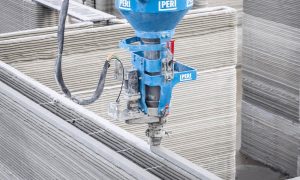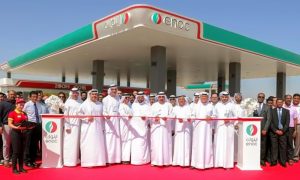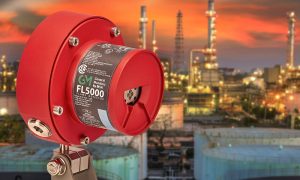Dubai goes green with biodiesel-powered municipal vehicles
Dubai Municipality marks Car Free Day with deal to use cleaner fuel

Dubai Municipality today signed an agreement with the UAE-based Neutral Fuels, a biodiesel manufacturer, to replace diesel in municipality-owned vehicles.
In an event coinciding with the city’s Car Free Day, the government body agreed to lower its carbon footprint by switching to biodiesel fuel.
“It’s the first time in the world that any municipality… has agreed to supply their own vehicles with fuel made from waste in their city, from their city, for their city,” said Karl W. Feilder, chief executive of Neutral Fuels. “We think this is an excellent thing for biodiesel, and it’s an excellent thing for Dubai.”
The exact number of municipal vehicles that will operate with biodiesel wasn’t available, but Neutral Fuels representatives said the green fuel will first be used in the municipality’s garbage trucks, one of which was on display at the event.
“We know that they use a lot of fuel in their vehicles, in their garbage disposal vehicles. We’re about to start some trials with them on this,” Feilder noted. “The carbon footprint of biodiesel is very, very low. It’s about 80% lower than normal diesel.”
Neutral Fuels, based in Dubai Investments Park, has been producing biodiesel since 2010. The biodiesel manufactured by the company is made out of used cooking oil procured locally. In 2011, the company signed an agreement with fast food giant McDonald’s to use their waste oil to make fuel, Feilder said.
“About a third of that fuel is used in the McDonald’s delivery trucks themselves, so we specially manufacture their fuel for them and then we sell the remaining fuel to other [companies] in the McDonald’s supply chain,” he noted.
“Last year, we produced about the same amount of biodiesel that would save about 240,000 trees worth of carbon, so it’s a huge saving for the environment. Normally, a 100 litres of oil converts into about 95 litres of biodiesel, so it’s quite an efficient process,” Feilder told Truck & Fleet ME on the side-lines of the event.
In an oil-rich region, however, it has not been easy convincing customers about the benefits of biodiesel, the chief executive admits.
“The biggest challenge we’ve had has been educating people. We had to explain at every meeting what biofuel was about, how we made it, why it was good for the environment. It’s very difficult for anybody to trust that when they don’t see it.”
A full interview with Karl Feilder will be published in next month’s edition of Truck & Fleet ME

























